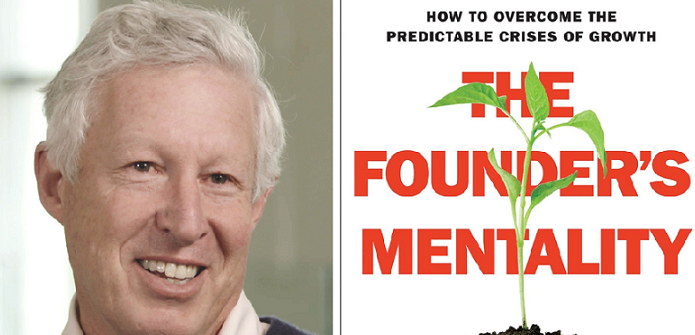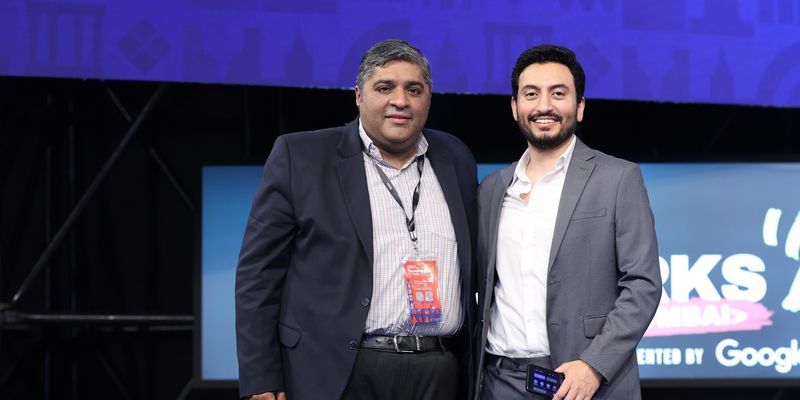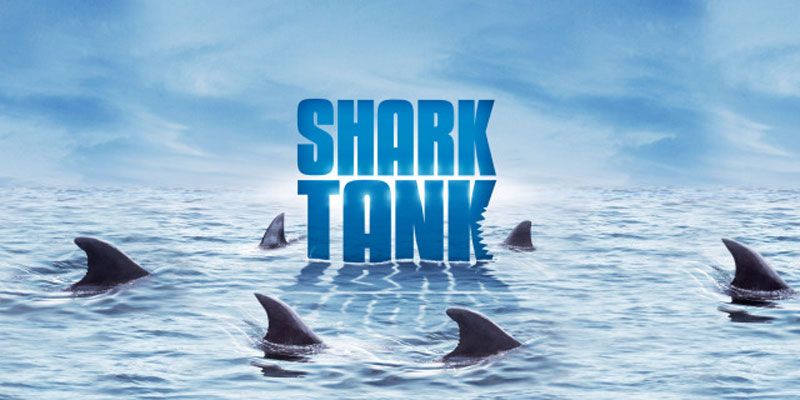Preserving the founder’s mentality is your core competitive advantage: innovation tips from Chris Zook, Bain partner
This bestselling author shows how scale-stage challenges of a company can be tackled by an innovative mission, customer focus and bias for action.

Chris Zook is a partner in Bain & Company's Boston office. He was co-head of the Global Strategy practice for 20 years. His most recent book is The Founder’s Mentality: How to Overcome the Predictable Crises of Growth (see my book review). It addresses the importance of an insurgent mission, frontline obsession and owner’s mindset in tackling scale challenges of overload, stalling and freefall.
His earlier books are Repeatability: Build Enduring Businesses for a World of Constant Change; Profit from the Core: A Return to Growth in Turbulent Times, Beyond the Core: Expand your Market without Abandoning your Roots; and Unstoppable: Finding Hidden Assets to Renew the Core and Fuel Profitable Growth. His articles have been published in The Wall Street Journal, The Financial Times, The New York Times, Fortune, Forbes and BusinessWeek. Chris has a BA in Mathematics and Economics from Williams College, an MPhil in Economics from Exeter College, Oxford University, and master’s and doctorate degrees from Harvard University.
Chris joins us in this interview on agile innovation, the challenges of retaining the founder’s unique mentality as a company scales, and the importance of deep engagement with customers and frontline employees.
YourStory: What is your current field of research in innovation?
Chris Zook: Our current research has led us to a big idea, which we call micro-battles: a means to drive innovation at the front line and to draw leaders closer to the ground-level details of the business while empowering, not controlling, those who are working there. Think of a micro-battle as a “pilot project on steroids”, staffed full time by the best talent, using the rules of agile teams, focused on the most important strategic bottlenecks, and having a finite time to create a microcosm of what the company wants to be in future.
If you were a retailer, think of it as creating “the perfect store” where all innovative ideas were put together to create the store of the future – and then roll it out more broadly, and learn from experience. These sophisticated ways to do pilots, testing and learning are central to our current new research on innovation.
YS: How was your book received? What were some unusual responses and reactions?
CZ: The Founder’s Mentality (TFM) has done very well in the marketplace. It made its way on to a number of bestseller lists, was the No.1 trending book on Amazon, and has received special mentions on a number of book lists around the world. It was also the bestselling book for our publisher, Harvard, over the past few years.
The most surprising response has been the extent to which growing, founder-led companies, who still have a strong ‘Founder’s Mentality’, have embraced the book, gained a greater appreciation for the competitive advantage they enjoy from strong performance on the elements of TFM, and now see those elements as a hidden asset, the core of why they can compete against larger firms.
YS: How would other frameworks of strategy and innovation connect with your framework, eg. blue ocean, design thinking, lean startup?
CZ: We think that The Founder’s Mentality is actually quite unique. Most of the frameworks you list are about “where to play” or how to “pivot” your business model. Our work is about how to win, and how to get a company into fantastic shape on the inside in order to win on the outside.
YS: How can social entrepreneurs and non-profit organisations make use of your framework? Any examples you can cite here?
CZ: The Founder’s Mentality has been used effectively by many non-profit organisations around the world who see their “insurgent mission” (one of the three elements of TFM) as key to their success. Examples would be City Year, Teach for America, and Endeavour.
In addition, it has been used by many companies that are working to increase the strength of their higher purpose, especially in the area of sustainable environmental practices.
YS: Are you planning an online companion with new tools and case studies?
CZ: We have put an enormous amount of material, diagnostics, surveys for users, and a manual on a powerful idea called ‘Micro-battles’ on our website.
YS: What would you say are the top three political challenges that companies face while bringing back The Founder’s Mentality?
CZ: It depends on the situation of the company. But here are three big challenges we have seen. First, the hardest situation is the company that is still performing well, but is seeing complacency set in. The absence of a burning platform makes it hard to generate the energy and focus needed in some organisations.
Second, sometimes what is needed to renew the founder’s mentality is a shake-up of the leadership team as well as a restoration of meritocracy for the most talented younger people who sometimes feel stuck or undervalued. Rotating people out of positions more rapidly in an organisation that has become stagnant can be a big challenge.
Finally, one of the biggest challenges in renewing The Founder’s Mentality is weakening departmental “silos” and budget control focused narrowly on functional excellence in favour of big 10X investments across the whole firm.

YS: Cost-cutting and layoffs can also be demoralising - how can this impact be avoided or reduced while re-focusing on the core?
CZ: Not all attempts to strengthen focus require cost-cutting and layoffs. However, sometimes it is necessary to get back “in shape” by reducing management layers and liberating resources to focus on growth.
The key is to make surgical, focused cuts that are seen as a way to liberate resources for the future and to increase speed to compete. The long-term reward must justify the short-term effort.
YS: How should founders balance the fine line between ‘obsess over the details’ and ‘delegate tasks to others’ while scaling up?
CZ: Founders do not need to be personally involved in every detail. That can be counterproductive. What is important is to be a role model for the next generation in terms of attention to detail and intellectual curiosity at the frontline.
Many of the great Indian promoters do this well. M.S. Oberoi, well into his 90s, would read customer comment cards on Sunday mornings and still be making notes and imparting his wisdom. Over 90 percent of successful innovation comes from observation at the frontline. Founders can make a big difference here.
YS: What if there have been conflicting views between two or more co-founders - whose mentality should be brought back?
CZ: There are always conflicting views. The Founder’s Mentality is not about achieving consensus among founders. Rather, some tension can be good and a sign of pressure testing ideas. The Founder’s Mentality is about those measures of internal health of a company, and its ability to grow.
The three major elements – the need for an insurgent mission that is unique, the need to have a frontline obsession and intellectual curiosity in the details of the business, and the need for speed and anti-bureaucracy are things that most founders agree on, in my experience.
YS: What is your next book going to be about?
CZ: All of my books have been a by-product of the discussions, questions, and concerns of the executives, founders, and CEOs that I meet around the world while discussing and holding workshops on my previous wave of research, ideas, and findings.
I am still engaged in doing many visits and talks regarding The Founder’s Mentality and I am taking a lot of notes along the way. There is no shortage of rich areas for continued work.
YS: What is your parting message to the startups and aspiring entrepreneurs in our audience? How can they ensure they sustain but scale The Founder’s Mentality?
CZ: The three elements of The Founder’s Mentality are critical for leaders of young companies to recognise as at the core of their competitive advantage and to use these advantages to the fullest.
If they do this well, they will scale faster than more bureaucratic incumbents, be more inspirational to the best young talent, and identify closer with the real needs of customers.









![[Funding roundup] iSprout, Healthfab, Rage Coffee, Stage3, others raise capital](https://images.yourstory.com/cs/2/a09f22505c6411ea9c48a10bad99c62f/Image03w0-1640781482458.jpg)

